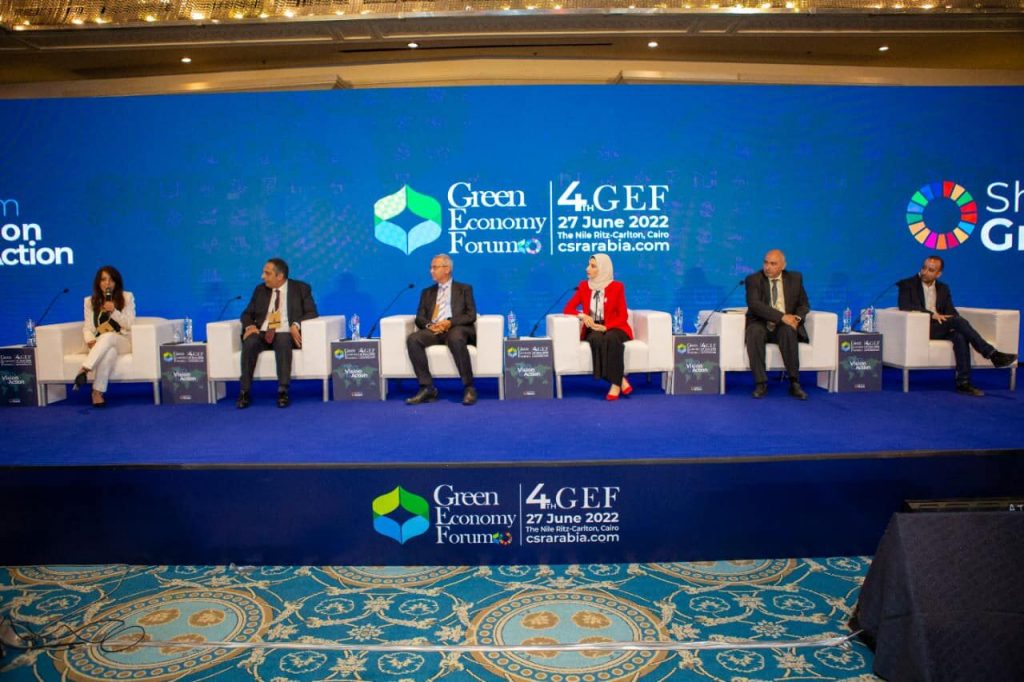World’s leaders’ gathering
More than 100 world leaders gathered at COP27 in Sharm El-Sheikh, Egypt, to launch the Climate Implementation Summit and work toward putting existing climate agreements into practice.
President Abdel-Fattah El-Sisi of Egypt and Antonio Guterres, the UN Secretary-General, welcomed world leaders. The summit began with an inaugural plenary addressed by H.E. President Abdel-Fattah El-Sisi, who was joined by a number of other prominent speakers, including heads of state and climate leaders, who emphasized the need for quick response to combat climate change.
H.E. President Abdel-Fattah El-Sisi Welcoming
The speech started with welcoming the world leaders and was followed by addressing crucial questions in regard to one of the most global pressing issues. Are we today closer to achieving our target? Have we been able to assume our responsibilities as world leaders toward the most serious issues of the century? And most importantly, does what we aspire to achieve fall under the scope of “Possible”?
The president highlighted that we are not here to answer these questions, but for taking more serious actions. That’s why Egypt was keen on calling the conference to be “The Implementation Summit”.
As the end of the decade is soon, the Egyptian president emphasized that world leaders need to have quick responses. Thus, the resilience of the attended negotiators is required to have solid outcomes at this conference.
UN Secretary General’s Remarks
H.E António Guterres highlighted his intro by stating: “We are in the fight of our lives. And we are losing. Greenhouse gas emissions keep growing. Global temperatures keep rising. And our planet is fast approaching tipping points that will make climate chaos irreversible.” We are on a highway to climate hell with our foot still on the accelerator. The UN secretary emphasized the role of developed countries leading in this decade. This COP must agree on a clear, time-bound roadmap reflective of the scale and urgency of the challenge. This roadmap must deliver effective institutional arrangements for financing and getting concrete results on “loss and damage” is a litmus test of the commitment of the governments to the success of COP27. António outlined that Adaptation needs are set to grow to more than $300 billion dollars a year by 2030,
António Guterres highlighted that the road with financial and technological tools is clear. The only need is the unity of nations for implementation. His excellency also mentioned that the war in Ukraine, and other conflicts, have caused so much bloodshed and violence and have had dramatic impacts all over the world. Nations must work together to reach peace. His talk ended by emphasizing that the global climate fight will be won or lost in this crucial decade – on our watch.
Roundtables
Following the opening plenary, there were three roundtable sessions with world leaders to discuss a range of pertinent climate change issues including Just Transition, Food Security, and Innovative Finance for Climate and Development.
The Just Transition roundtable was geared toward fostering dialogue between developing nations, contributing countries, UN entities, financial institutions, the private sector, and philanthropies.
The Food Security roundtable targeted the initiation of a platform for countries with different national contexts and priorities to identify ways of coming together to collectively tackle the present and future of food security worldwide. Developed countries could share views on how to encourage more balanced diets and minimize emissions per calorie, delivering successes in enhancing agriculture resilience, and reducing food losses. Developing countries that are suffering the most discussed the needed support for scaling resilient agriculture projects and enhancing livelihoods (e.g. on regenerative agriculture). Relevant International organizations could pinpoint ways to unlock more funds for resilience projects in developing countries, with a contribution from financial institutions and the private sector on the technical solutions to do so.
The Innovative Finance roundtable gathered representatives from contributing countries and recipient countries, together with International Financial Institutions, MDBs, and actors from the private sector. Developed countries have elaborated on the barriers hindering the acceleration of investment into climate action (e.g.: the need for more investment-ready projects presented by recipient countries). Developing countries discussed various challenges related to obtaining financing for climate projects (e.g.: the difficulty of identifying bankable projects without knowing whether financing will be accessible, and complex granting procedures…), and showcase some success stories on reducing the cost of green financing
Green Zone Opening
Prime Minister Mostafa Madbouly inaugurated the Green Zone, in the presence of Dr. Yasmine, Minister of Environment, Ministerial Coordinator and Envoy of the Climate Summit, and Mr. Sameh Shoukry, COP 27 president, and in the presence of a group of government ministers.
Investment of 3 billion USD for early warning systems
The Executive Action Plan for the Early Warnings for All initiative calls for initial new targeted investments of $ 3.1 billion between 2023 and 2027, equivalent to a cost of just 50 cents per person per year. H.E UN Secretary Guterres announced the plan at the COP27 climate change conference, underway in Sharm el-Sheikh, Egypt, during a meeting of government and UN leaders, financing agencies, ‘Big Tech’ companies, and the private sector.
EU leaders vow to keep cutting carbon
German Chancellor Olaf Scholz said that Russia’s war in Ukraine had shown that switching to renewable energy is “a security policy imperative” as well as a forward-looking climate, environment, and economic policy. “We will stop using fossil fuels, no ifs or buts! There must not be a global renaissance of fossil fuels,” he said, though Germany has asked energy firms to delay the closure of coal plants as the Ukraine war disrupted energy supplies.
“Resolute deeds must follow our resolute promises towards climate protection,” he said.
Meanwhile, Italy’s new prime minister Giorgia Meloni said Italy remained “strongly committed” to pursuing its decarbonization pathway in line with the Paris Agreement.
“We intend to pursue a just transition to support the affected communities and leave no one behind,” she said.





